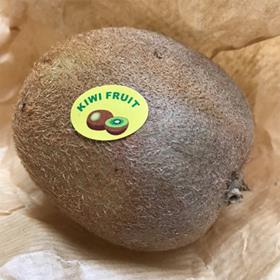
Italy’s kiwifruit sector is in a strong position when it comes to supply and demand, although the one serious doubt that remains in 2021 is the threat posed by a soil-borne disease known locally asmoria.
According to producers in Lazio, Europe’s largest source of kiwifruit. the disease has already destroyed around a quarter of the province’s 12,000ha production area. And with growers reportedly struggling to buy insurance against the disease, it’s a problem that could leave several unable to continue.
In the meantime, for those that can safeguard their investments, selling the health benefits of this vitamin-rich fruit to a highly receptive international market remains a real winner. Not surprisingly, market demand has strengthened in the past 12 months, although the supply chain logistics involved are certainly more complicated now.
For example, leading marketer Jingold has been employing strict virus prevention and control measures that require staff at every stage of the process, from harvesting to transportation to warehouse management, to take nucleic acid tests. At its packing facilities, two separate teams now work alternate shifts to avoid contact with each other.
The kiwifruit itself undergoes a strict disinfection process before being transferred to warehouses and loaded into containers. With prices in the market rising, it makes sense to invest more in protecting that business.
Underlining that strong commercial interest in the category, and especially yellow-fleshed varieties, Italian produce giant Alegra announced in January that it was working with private equity fund Idea Agro to plant around 100ha of Zespri’s SunGold variety in Lazio.
According to Jingold, Italy has a lot more yellow-fleshed kiwifruit to offer these days thanks to a steady expansion of orchard plantings in the last few years. Total production volume for this season was estimated at 80,000 tonnes, which represents a 35 per cent increase on the previous year.
The market also seems to want more organic kiwifruit. Carola Gullino of Piedmontese group Gullino told Italiafruit recently that, despite competition from neighbouring Greece, the company was shipping a lot to the UK and France. “Organic kiwifruit is performing well and, in general, we are confident that the campaign will end positively,” she noted.
Plus, with packaging very much in demand as a result of food safety concerns driven by the pandemic, there’s growing interest in materials that can offer some guarantee of environmental sustainability. Valfrutta, one of Italy’s leading fresh produce brands and part of the Apo Conerpo group alongside Alegra, recently launched an innovative flowpack for kiwifruit that uses only biodegradable, compostable, plant-based plastic.
“The pack is made with cellulose film of vegetable origin, obtained from production cuttings and twigs, that can be transformed into precious humus for plants,” explains the company’s general director Stefano Soli.



